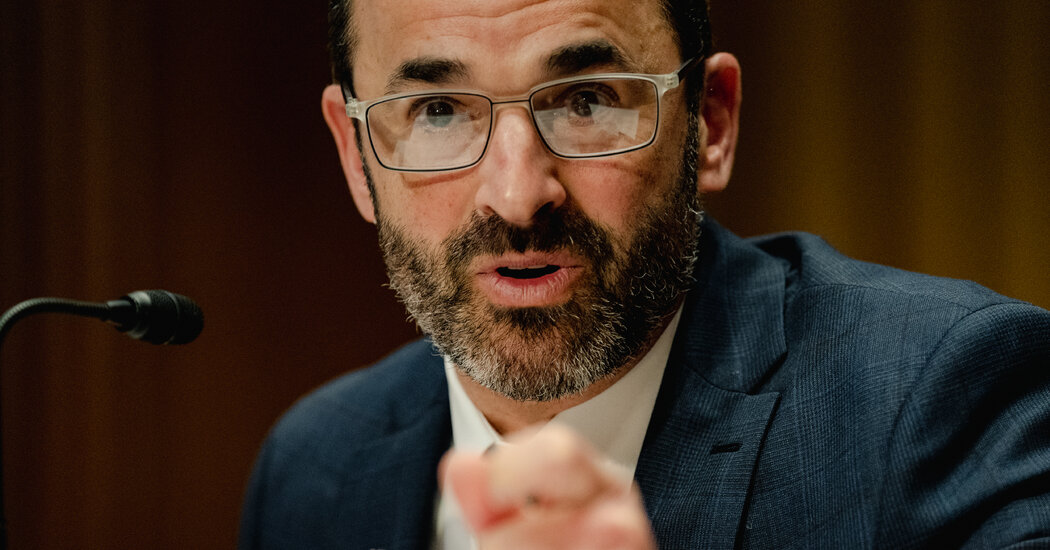The Internal Revenue Service said Monday it would immediately curb the practice of sending agents to make surprise visits to homes and businesses, scaling back a policy that has been central to its efforts to collect unpaid taxes for decades amid political backlash and mounting threats to its employees.
The change comes as the IRS embarks on a multi-billion dollar modernization project that aims to upgrade technology, ramp up tax code enforcement, and improve customer service. It also coincides with increased scrutiny of the tax collection agency, which has drawn criticism from Republicans for perceptions of political bias and from taxpayers who claim its tactics are overly aggressive.
“We are reviewing how the IRS works to better serve taxpayers and the nation, and making this change is a wise move,” Daniel Werfel, the IRS commissioner, said in a statement. “Changing this longstanding procedure will increase confidence in our tax administration work and improve overall security for taxpayers and IRS employees.”
Mr. Werfel, in his remarks to reporters, outlined the new approach as part of the agency’s transformation, which aims to use IRS resources more efficiently and work more constructively with taxpayers. Mr. Werfel, who has been in office for four months, said he wanted to end the public perception that IRS employees go door-to-door to collect taxes.
The agency is trying to project a more customer-centric approach to taxpayers, while Republicans are fueling fears that the tax collector is hiring an army of 87,000 new agents to take down small businesses and the middle class. The IRS’ distaste has made its agents’ jobs more dangerous; last year, the agency launched an extensive security investigation after misinformation and false posts on social media led to threats directed at employees.
The IRS said Monday that unannounced visits would only go ahead in a few “unique” circumstances and that they would generally be replaced by letters in the mail to schedule meetings. Mr. Werfel said the personal visits were generally used to collect tax debts in excess of $100,000 and were used to demonstrate that the agency was closely monitoring taxpayers’ affairs. Under the new system, taxpayers who ignore written correspondence from the IRS could end up facing fines or liens on their property.
The agency typically makes tens of thousands of unannounced visits to households and businesses each year and will only continue to do so in subpoenas and subpoena or asset seizure cases. Those types of cases usually occur less than a few hundred times a year, according to the IRS.
It employs about 2,000 unarmed tax officials who usually make unannounced visits to discuss taxes due or missing returns. Sometimes they visit without warning if they think a company is behind on payroll taxes or collecting a debt.
The IRS’s investigative unit, which does employ armed officers who visit homes and businesses, will not be affected by the policy change for tax officials.
Republicans have made it a priority to thwart the Biden administration’s plans to bolster the IRS with $80 billion it got last year as part of the Inflation Reduction Act. They successfully cut $1.4 billion of the agency’s funding in debt-cutting legislation Congress passed in June and reached a deal to recover another $20 billion as part of the final budget deal that lawmakers are expected to approve this year.
In recent months, lawmakers and anti-tax groups such as Americans for Tax Reform have questioned unannounced visits by IRS agents. As examples of overreach, they pointed to a June raid on a gun store in Montana — where officers seized personal information from gun owners and buyers — and an April visit by agents to the Florida offices of investor Jeffrey Gundlach, who was apparently the due to a typing error.
Mr Werfel suggested that ending unannounced visits was in response to the prevalence of scammers posing as cops. He said this had created additional anxiety for taxpayers and increased stress for tax officials.
“We have the tools we need to successfully collect revenue without added stress with unannounced visits,” said Mr. Werfel, adding that improved analytics would enable the agency to meet its compliance goals. “The only losers with this policy change are scammers posing as the IRS”
The IRS commissioner said he expected the new policy to address concerns about unannounced visits raised by members of Congress.
The new policy is also expected to be welcomed by the IRS, where tax officials have raised increasing concerns about their safety during the visits. In some cases, agents encountered hostile taxpayers wielding guns.
Tony Reardon, the national president of the National Treasury Employees Union, said the decision to end unannounced field visits was welcome.
“The safety of IRS employees is of paramount importance,” he said, “and this decision will help protect those whose jobs have only become more dangerous in recent years because of false, inflammatory rhetoric about the agency and its staff.”

